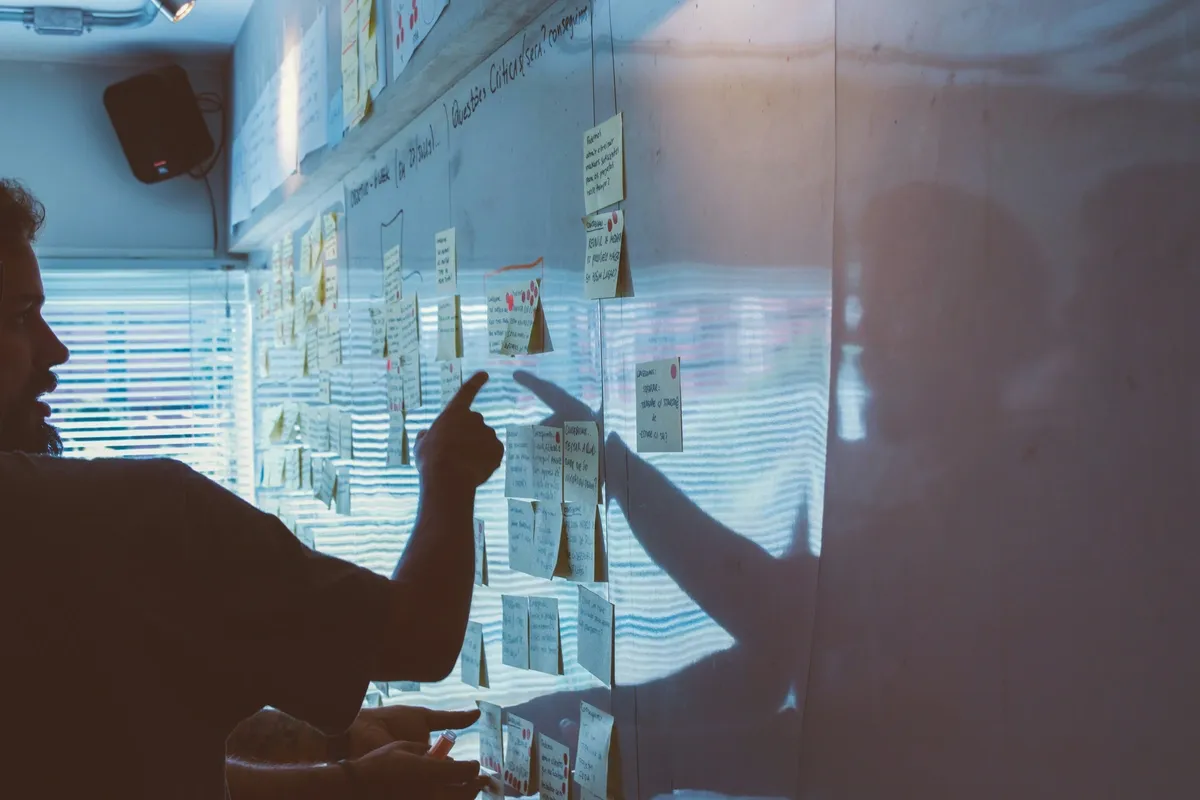
Efficient project management is critical for non-profit organizations that often operate with limited resources and rely heavily on volunteers. Effective strategies can help ensure projects are completed on time and within budget, navigating the unique challenges faced by non-profits. By adapting proven project management methodologies and utilizing the right tools, non-profits can optimize their operations, enhance resource allocation, and achieve their mission-driven goals more effectively.
Understanding the Unique Challenges of Non-Profit Project Management
Non-profit organizations often face unique challenges in project management due to their mission-driven nature, limited resources, and reliance on volunteer workforces. These factors contribute to the complexity of managing projects and achieving their objectives.
Overview of Common Challenges Faced by Non-Profits in Project Management
Non-profit organizations operate within a different context compared to their for-profit counterparts, and this often results in unique challenges in project management. Some of these challenges include:
-
Funding Constraints: Non-profit organizations often face funding constraints that can impact project planning and execution. Project managers within these organizations need to prioritize their project activities based on their impact and alignment with the organization’s mission. This requires a deep understanding of the project’s goals and objectives and a keen awareness of the available resources (source).
-
Limited Resources: Non-profits often grapple with having limited resources. This not only includes financial constraints but also a shortage of manpower, limited time, and a lack of expertise in specialized areas. These constraints can pose challenges on multiple fronts including marketing, outreach, project execution, and even internal processes (source).
-
Budget Constraints: Nonprofits depend on grants, donations, and fundraising, and their funding cycles may not align perfectly with iterative development timelines. Proper budget planning is crucial for financial sustainability and provides a guide for financial health and sustainability (source).
Specific Issues Related to Managing Volunteers and Limited Resources
Non-profits heavily rely on volunteers for achieving their mission. However, managing a volunteer workforce presents unique challenges. These include recruiting, training, retaining, and managing volunteers who may have limited availability, affecting project continuity. Clear communication, role definition, training, and recognition of volunteers are crucial aspects of volunteer management (source, source).
The Impact of Budget Constraints on Project Execution and Delivery
Budget constraints can greatly impact project execution and delivery in non-profit organizations. With finite resources, project managers need to prioritize project activities that align most closely with the organization’s mission. This might require making tough decisions about what can be accomplished within the constraints of the budget. Moreover, unexpected expenses can arise, requiring flexibility and strategic reallocation of resources (source).
In conclusion, non-profit project management is a complex field with unique challenges. Understanding these challenges is the first step towards developing effective strategies and practices to overcome them.
Adapting Methodologies for Non-Profit Project Management
Implementing Agile and Lean methodologies can significantly enhance project management in non-profit organizations, offering a structured yet flexible approach to navigating their unique challenges. Agile and Lean, often associated with the tech industry, are increasingly being adapted across various sectors, including non-profits, to improve efficiency and effectiveness.
Introduction to Agile and Lean Methodologies
Agile is an iterative approach that emphasizes flexibility, collaboration, and customer feedback. It breaks down projects into smaller, manageable increments, allowing teams to adapt quickly to changes and deliver value continuously. This methodology prioritizes speed and flexibility over rigid planning, making it well-suited for dynamic environments (source).
Lean methodology, on the other hand, focuses on eliminating waste and optimizing processes to maximize value. It aims to streamline operations, reduce unnecessary steps, and improve overall efficiency, which is crucial for non-profits operating with limited resources. Lean encourages a culture of continuous improvement and waste minimization (source).
How These Methodologies Can Be Adapted for the Non-Profit Sector
Non-profits can adapt Agile and Lean methodologies to better manage their projects and resources. Agile’s iterative cycles and focus on collaboration can help non-profits respond swiftly to changing circumstances and stakeholder needs. For instance, Agile promotes regular check-ins and adjustments, enabling teams to stay aligned with project goals and make necessary pivots (source).
Lean’s emphasis on efficiency is particularly beneficial for non-profits. By identifying and eliminating waste, non-profits can better utilize their limited resources. Lean principles can be applied to streamline volunteer management, fundraising processes, and service delivery, ensuring maximum impact with minimum expenditure (source).
Benefits of Implementing These Methodologies in Non-Profit Projects
Adopting Agile and Lean methodologies offers several benefits to non-profit projects:
- Improved Resource Management: Both methodologies help in better allocation and utilization of resources, ensuring that every dollar and hour spent contributes to the mission.
- Increased Flexibility and Adaptability: Agile’s iterative nature allows non-profits to quickly adapt to changes, a crucial ability in the often unpredictable non-profit sector.
- Enhanced Collaboration and Communication: Regular Agile meetings and Lean’s focus on streamlined processes foster better teamwork and communication.
- Higher Success Rates: By focusing on continuous improvement and responsiveness, these methodologies can lead to higher project success rates and stakeholder satisfaction (source).
Case Studies or Examples of Non-Profits Successfully Using These Methodologies
Several non-profits have successfully integrated Agile and Lean methodologies into their operations. For example, Kaiser Permanente, a non-profit healthcare provider, utilized the Scaled Agile Framework (SAFe) to enhance home care services, resulting in improved workflows and software solutions (source). Similarly, Easterseals Northern California adopted Agile and Lean practices to align their business and IT functions, leading to better quality services and higher employee engagement (source).
These examples illustrate that with thoughtful adaptation, Agile and Lean methodologies can drive significant improvements in non-profit project management, enabling organizations to achieve their missions more effectively.
Tools and Tips for Effective Project Tracking and Resource Allocation
Effective project tracking and resource allocation are pivotal for the success of non-profit organizations. Utilizing the right tools and strategies ensures that projects are completed on time, within budget, and aligned with the organization’s mission.
Importance of Using the Right Tools for Project Tracking
Project tracking is essential for maintaining organization and oversight in non-profit operations. By breaking down work into discrete tasks and monitoring their progress, non-profits can ensure that projects stay on track. Proper project management tools facilitate coordination and communication among team members, helping to avoid bottlenecks and ensuring that everyone is aligned with the project goals (source). These tools help non-profits manage their workflow efficiently, ensuring timely project execution (source).
Overview of Essential Project Management Tools and Their Features
Non-profit project management tools come with a range of functionalities designed to meet the specific needs of these organizations. Key features to look for include:
- Budget Management: Tools that help track and manage budgets to ensure financial sustainability.
- Project Planning and Scheduling: Features that assist in creating project timelines and scheduling tasks.
- Reporting and Tracking: Capabilities for generating reports and tracking project progress.
- Collaboration Tools: Functions that enhance team communication and collaboration.
- Resource Allocation and Planning: Tools for optimizing the use of resources.
- Mobile Access: Accessibility via mobile devices for flexibility and convenience (source).
Tips for Efficient Resource Allocation and Management
Efficient resource allocation is crucial for maximizing the impact of non-profit projects. Here are some tips for effective resource management:
- Align Resources with Organizational Goals: Ensure that resources are allocated to projects that align closely with the organization’s mission and goals.
- Prioritize Resource Allocation: Focus on projects and tasks that offer the highest impact and return on investment.
- Develop a Roadmap: Create a detailed roadmap for resource allocation to maintain clarity and direction.
- Optimize Staffing and Volunteer Allocation: Utilize staff and volunteers effectively by matching their skills to the right tasks.
- Enhance Efficiency: Continuously seek ways to improve resource allocation processes to reduce waste and increase productivity (source).
Highlighting Minute7’s Features that Aid in Project Tracking and Resource Management
Minute7 offers several features that can significantly aid non-profits in project tracking and resource management:
- Seamless Integration with QuickBooks: Minute7 integrates directly with QuickBooks, allowing for easy tracking of time and expenses.
- Mobile App: The mobile app provides flexibility and convenience, enabling team members to track time and expenses from anywhere.
- User-Friendly Interface: Users have praised Minute7 for its ease of use and how it streamlines budget reporting for payroll.
- Comprehensive Reporting: Minute7 helps generate detailed reports, which are crucial for managing 1099 contractors and project expenses (source).
Testimonials from Non-Profits Using Minute7
Non-profit organizations using Minute7 have reported positive outcomes. Users appreciate its seamless integration with QuickBooks and the ability to easily sync data. One user noted that Minute7 has “saved hours and improved our invoicing process,” while another highlighted the “useful report generating feature for both expenses and time” (source).
In conclusion, effective project tracking and resource allocation are critical for non-profits aiming to achieve their mission-driven goals. By employing the right tools and strategies, such as those offered by Minute7, non-profits can enhance their project management processes, ensuring successful project outcomes.
Achieving Success with Efficient Project Management Strategies
In conclusion, non-profit organizations face a unique set of challenges in project management, from budget constraints to managing volunteers and limited resources. By understanding these challenges and strategically addressing them, non-profits can enhance their project outcomes. Adapting methodologies such as Agile and Lean allows for greater flexibility, efficiency, and responsiveness, making it easier to navigate the dynamic environment in which non-profits operate.
Utilizing the right tools for project tracking and resource management is paramount. Tools like Minute7 offer essential features that aid non-profits in maintaining oversight, streamlining processes, and ensuring that every resource is used effectively. With its seamless integration with QuickBooks, mobile accessibility, and user-friendly interface, Minute7 is an invaluable asset for non-profits looking to improve their project management practices.
By implementing these strategies and leveraging Minute7’s capabilities, non-profits can not only manage their projects more efficiently but also achieve their mission-driven goals with greater confidence and success. For non-profits aiming to enhance their project management processes, Minute7 provides a robust solution that meets their specific needs, enabling them to make the most of their limited resources and drive impactful change.



